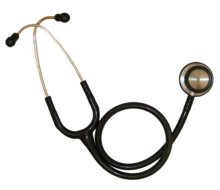PSYCHIATRIST TO PATIENTS: ADHERE STRICTLY TO MEDICATION TO AVOID RELAPSE
A Consultant Psychiatrist, Mrs. Grace Ijarogbe, on Monday urged patients with mental health issues to take their medications regularly to prevent relapse of their ailment.
Ijarogbe, who is a consultant at the Federal Neuro-Psychiatric Hospital, Yaba, gave the advice in an interview with the News Agency of Nigeria (NAN) in Lagos.
She said that psychiatric medications sometimes could be for a lifetime and any break by patients in taking them may result in re-occurrence of symptoms of the ailment.
The consultant psychiatrist added that it was important for psychiatric patients to adhere strictly to medication.
“With the kind of patients, we have here, compliance with taking their medications is a challenge.”
“That is why we do patients’ counselling to ensure that we educate them on the need to take the drugs, as prescribed.”
“We try to educate them that mental illness is not different from any other illnesses like hypertension, diabetes, stroke; but they just have to take their drugs.”
“One of the reasons some do not take their medications is because of the side effects, but there are drugs that have lighter side effects.”
“They just have to take the drugs to prevent relapse; because we find that many of the patients keep coming in and out of the hospital,” she said.
According to her, relapses can have devastating consequences for people with mental disorders such as schizophrenia, bipolar disorder, depression, or an anxiety disorder.
She said after every relapse, it may become increasingly difficult to regain control over the ailment or the symptoms.
Ijarogbe explained that it was important for people with mental disorders to do all they could to reduce the risk of a relapse.
She identified common symptoms of relapse to include changes in mood, losing a sense of humour, becoming tense, irritable or agitated.
Other symptoms are finding it difficult to concentrate, neglecting outside activities and social relationships, neglecting to take medication and acting irrationally.
Ijarogbe advised that people with mental disorder and their relatives, friends, and caregivers should learn to recognise the early signs and symptoms of a relapse.
“If you notice or suspect any of these signs and symptoms in yourself, contact your family doctor, psychiatrist, or care worker as soon as possible for support and advice; as this may help to avert a full-scale relapse,” she said.
She also stressed the need to educate the public to always consult doctors or pharmacists before taking any medication.
According to her, many patients still patronise quacks and as a result, their conditions either worsened or they begin to develop resistance to drugs.
“We need to empower people on the need to consult the health professional before taking drugs; by so doing we can control drugs that are easily available,’’ she said.

